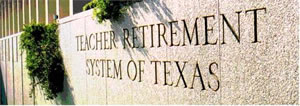
By Paula Vasan, aiCIO
Alongside senators, prime ministers, and banking kingpins, one (perhaps) unusual attendee is currently at this year’s Bilderberg meetings: Texas Teacher Retirement System (TRS) CIO Britt Harris.

Harris’ presence at the historically secretive three-day event in Chantilly, Virginia, perhaps sheds light on the growing influence of asset owners in the United States and around the world. In November 2011, private equity firms Kohlberg Kravis Roberts (KKR) and Apollo Global Management were selected to manage $6 billion for TRS. Each firm announced that it would receive $3 billion from TRS to manage in separate accounts devoted solely to the scheme. The deal marked a big win for the money management firms, increasingly eager and successful in soaking up pension capital.
Continue reading the article . . .
Related reading: dunwalke.com
Excerpt:
“The Hamilton Securities Group had a subsidiary charged with taking our data as it developed on individual transactions and portfolio strategy assignments and using it to develop a new approach to investment. We sought to help investors understand the impact of their investments on people and places and on a wider society as a strategy to identify opportunities to lower risks and enhance investment returns. This included understanding how to reduce the dependencies of municipalities and small business and farming on debt and increase their ability to finance with equity. Indeed, easy, subsidized access to equity financing is one of the reasons that large companies have grown so powerful and taken over so much market share from small businesses. Access to equity investment for small business and farms would result in a much healthier economy and much more broad-based support for democratic institutions.
“We were blessed with an advisory board of very capable and committed pension fund leaders. In April 1997, we had an advisory board meeting at Safeguard Scientifics where the board chair led a venture capital effort. I gave a presentation on the extraordinary waste in the federal budget. As an example, we demonstrated why we estimated that the prior year’s federal investment in the Philadelphia, Pennsylvania area had a negative return on investment. It was, however, possible to finance places with private equity and then reengineer the government investment to a positive return and, as a result, generate significant capital gains. Hence, it was possible to use U.S. pension funds to increase retirees’ retirement security significantly by investing in American communities, small business and farms — all in a manner that would reduce debt and improve skills and job creation. This was important as one of the chief financial concerns in America at that time was ensuring that our retirement plans performed financially to a standard that would meet the needs of beneficiaries and retirees. It was also critical to reduce debt and create new jobs as we continued to move manufacturing and other employment abroad. If not, we would be using our workforce’s retirement savings to finance moving their jobs and their children’s jobs abroad.
“The response from the pension fund investors was quite positive until the President of the CalPers pension fund — the largest in the country — said, “You don’t understand. It’s too late. They have given up on the country. They are moving all the money out in the fall (of 1997). They are moving it to Asia.” He did not say who “they” were but did indicate that it was urgent that I see Nick Brady — as if our data that indicated that there was hope for the country might make a difference. I thought at the time that he meant that the pension funds and other institutional investors would be shifting a much higher portion of their investment portfolios to emerging markets. I was naive. He was referring to something much more significant.”
